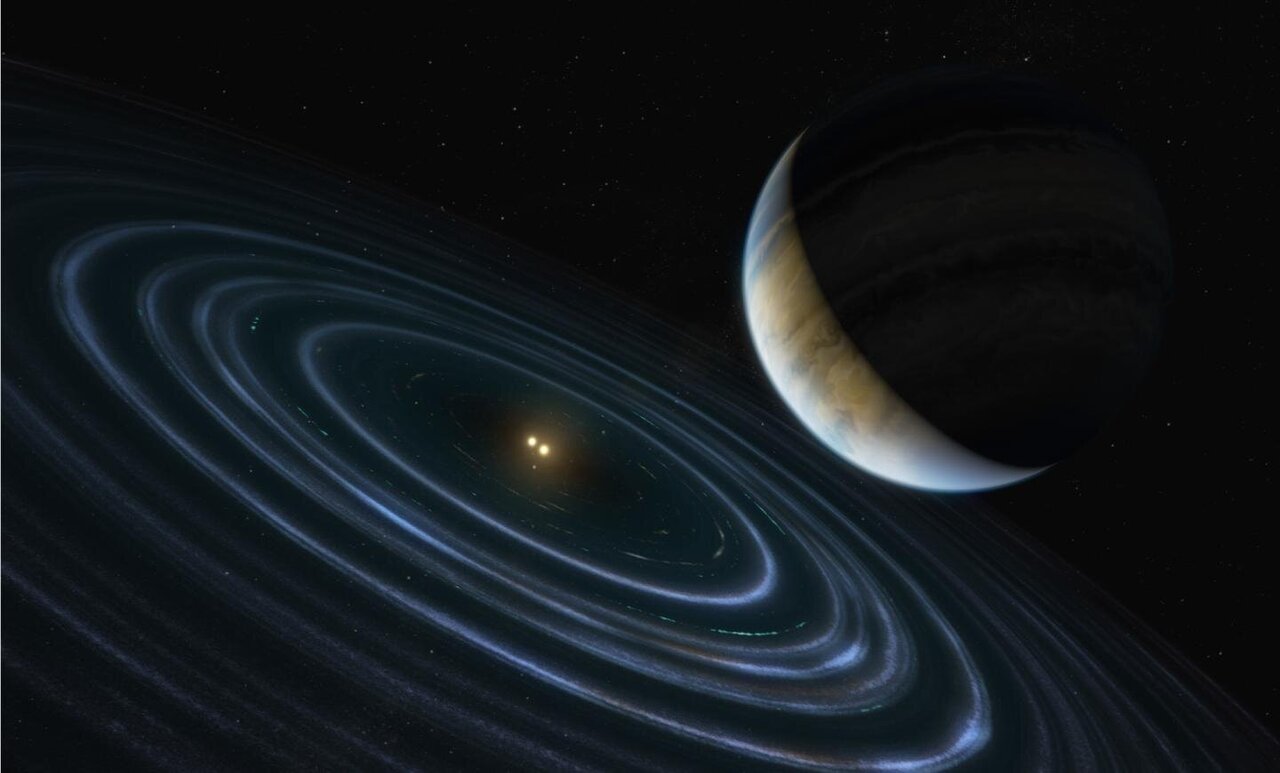The article says "What I really think makes HD 106906 b unique is that it is the only exoplanet that we know that is directly imaged, surrounded by a debris disk, misaligned relative to its system and is widely separated," Nguyen said. "This is what makes it the sole candidate we have found thus far whose orbit is analogous to the hypothetical Planet Nine."
HD 106906 b is challenging to the standard model of protoplanetary disk accretion and planet growth. There are a limited number of imaged exoplanets, most are far away from their host star compared to the Sun-Pluto distance ~ 40 au. Some other reports on this interesting exoplanet too.
A planet in an unlikely orbit around a double star 336 light-years away may offer a clue to a mystery much closer to home: A hypothesized, distant body in our solar system dubbed "Planet Nine."

phys.org
"...This is the first time that astronomers have been able to measure the motion of a massive Jupiter-like planet that is orbiting very far away from its host stars and visible debris disk."
First Detection of Orbital Motion for HD 106906 b: A Wide-separation Exoplanet on a Planet Nine-like Orbit - NASA/ADS (harvard.edu), December 2020, "HD 106906 is a 15 Myr old short-period (49 days) spectroscopic binary that hosts a wide-separation (737 au) planetary-mass ( ∼11MJup ) common proper motion companion, HD 106906 b. Additionally, a circumbinary debris disk is resolved at optical and near-infrared wavelengths that exhibits a significant asymmetry at wide separations that may be driven by gravitational perturbations from the planet..."
This exoplanet list shows 4382 confirmed,
The Extrasolar Planets Encyclopaedia (exoplanet.eu)
Using MS SQL query, 3587 show orbital periods < 366 days, 82%. Large exoplanets orbiting far from their host stars or binary system are challenging to explain their origin.



